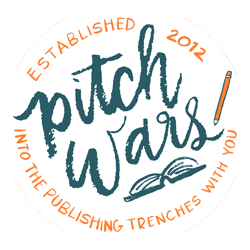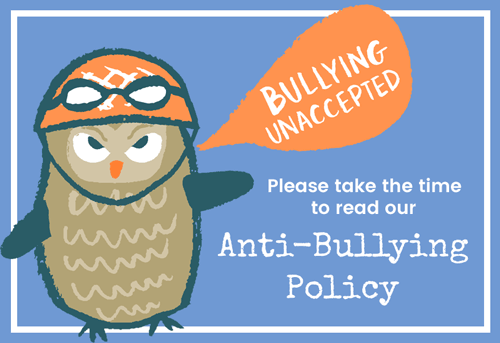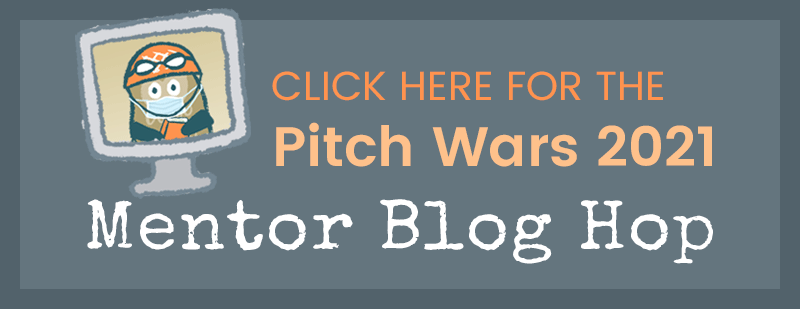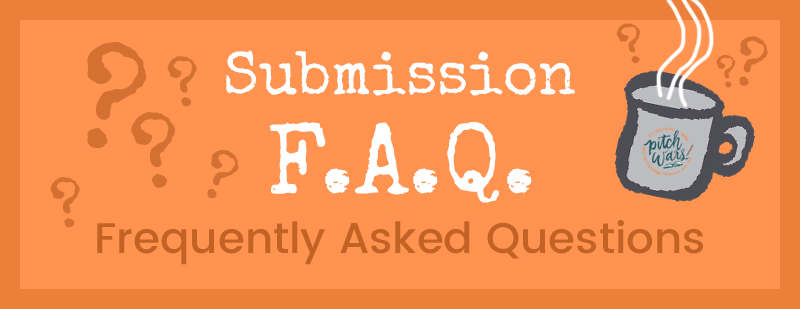 Welcome to the Pitch Wars Workshops with some of our amazing past and 2020 mentors. From a lottery drawing, we selected writers to receive a query and first page critique from one of our mentors. We’ll be posting some of the critiques leading up to the Pitch Wars submission window. Our hope is that these samples will help you in shining up your query and first page.
Welcome to the Pitch Wars Workshops with some of our amazing past and 2020 mentors. From a lottery drawing, we selected writers to receive a query and first page critique from one of our mentors. We’ll be posting some of the critiques leading up to the Pitch Wars submission window. Our hope is that these samples will help you in shining up your query and first page.
We appreciate our mentors for generously dedicating their time to do the critiques. If you have something encouraging to add, feel free to comment below. Please keep all comments tasteful. Our comments are set to moderate, and we will delete any inappropriate or hurtful ones before approving them.
Next up we have …
Pitch Wars Mentor Eric Bell …
 Eric Bell knew he loved telling stories when the other kids at recess would act them out. It was one of the few times in his childhood he was truly accepted. As a grownup, he writes stories about kids also finding their own versions of acceptance, and learning that it’s more valuable to accept yourself. Eric is the author of ALAN COLE IS NOT A COWARD and its sequel, ALAN COLE DOESN’T DANCE. Both books are about a gay seventh grade boy who deals with bullies, crushes, family issues, the healing power of art, and coming out. ALAN COLE IS NOT A COWARD was included on the Rainbow List for GLBTQ Books for Children and Teens. When not writing, Eric teaches writing classes, runs writing workshops, and copyedits. He has been a Pitch Wars mentor since 2018. He loves working with writers and helping to bring out their natural storytelling voice.
Eric Bell knew he loved telling stories when the other kids at recess would act them out. It was one of the few times in his childhood he was truly accepted. As a grownup, he writes stories about kids also finding their own versions of acceptance, and learning that it’s more valuable to accept yourself. Eric is the author of ALAN COLE IS NOT A COWARD and its sequel, ALAN COLE DOESN’T DANCE. Both books are about a gay seventh grade boy who deals with bullies, crushes, family issues, the healing power of art, and coming out. ALAN COLE IS NOT A COWARD was included on the Rainbow List for GLBTQ Books for Children and Teens. When not writing, Eric teaches writing classes, runs writing workshops, and copyedits. He has been a Pitch Wars mentor since 2018. He loves working with writers and helping to bring out their natural storytelling voice.
Eric’s latest release…
 Perfect for fans of Tim Federle and Gary Schmidt, this is a hilarious and poignant tale about the trials of middle school when you’re coming of age—and coming out.
Perfect for fans of Tim Federle and Gary Schmidt, this is a hilarious and poignant tale about the trials of middle school when you’re coming of age—and coming out.
Alan Cole can’t stand up to his cruel brother, Nathan. He can’t escape the wrath of his demanding father, who thinks he’s about as exceptional as a goldfish. And—scariest of all—he can’t let the cute boy across the cafeteria know he has a crush on him.
But when Nathan discovers Alan’s secret, his older brother announces a high-stakes round of Cole vs. Cole. Each brother must complete seven nearly impossible tasks; whoever finishes the most wins the game. If Alan doesn’t want to be outed to all of Evergreen Middle School, he’s got to become the most well-known kid in school, get his first kiss, and stand up to Dad. Alan’s determined to prove—to Nathan, to the world, to himself—that this goldfish can learn to swim.
May the best Cole win.
Amazon | Barnes & Noble | Chapters | Book Depository | IndieBound | Goodreads
Eric’s critique . . .
Category: Middle Grade Historical Fiction
Query:
[Hi! Thanks for taking the time to submit. It takes courage to solicit feedback like this! Hopefully I can be of some help to you in the submission process. Best wishes! 🙂
-Eric]
Dear (Agent),
When Caroline Kelly finds a simple plastic bag in the elevator of her Watergate East Condo complex, she has no idea how important it is. What happens the following few days and weeks could determine the course of a presidential scandal. [This is a great backdrop for a story! However, at the start, all we have is the setting. All we know from these two lines is there’s a kid who gets involved in the Watergate scandal, but we don’t see what’s at stake for her personally or what her role is in anything. What we learn from the rest of the query is that Caroline is an aspiring journalist with parents who don’t want her getting into trouble, yet she still helps break the scandal that brought down a presidency. Those are big stakes, particularly the major role she plays in American history – and particularly if Caroline is actually in real danger at some point (which I’m not getting a sense of in the query but might be necessary to up the stakes). I would definitely communicate that in the first paragraph as much as possible. Maybe – just an idea – “Aspiring kid journalist Caroline Kelly has a chance to break the scoop of a lifetime when she finds a simple plastic bag at the Watergate East Condo complex.” Then add another line about the big obstacle(s) she’ll face, be they overprotective parents or secret government officials or what have you. I would encourage you to put that into your own words; my suggestion is just a starting point.
I like to think of the opening of a query as akin to a pitch, so you’ll want to make sure you lead with the biggest hook your story has to offer. You can also, following the two-sentence hook, add in the title/genre/word count. Since I’m assuming Caroline Kelly is not a real person, it’s especially important to make sure agents know your work isn’t non-fiction right away.
Also, as I say near the end of your query, you could put your agent personalization at the end here too, so you show the agents you’ve done your homework right away. So it could go like this:
One or two paragraph hook, with stakes -> title/genre/word count -> agent personalization.
I’ve seen queries done multiple ways, though as a mentor I’ve tried to steer my past mentees toward this approach.]
Caroline Kelly is a thirteen-year-old living in Watergate East, the high-rise condos which flank the [change “which flank the” to “flanking,” which flows better and cuts down on words] Watergate Hotel. On the last day of her seventh-grade year [change to “seventh grade,” for the same reason], she encounters a mysterious man as she gets on the elevator of their [“their” implies he lives there too, but she doesn’t seem to recognize him] building. He is obviously looking for something, and only after the elevator doors begin to close does Caroline see a bag on the floor of the elevator. The bag contains a Chapstick tube and a note with three phone numbers, initials in front of each. [One thing that confused me about this query is where the bag came from. Was the man looking for the bag? Did he drop it? Did he leave it behind on purpose? I know Caroline doesn’t know the answer, but one way you could be to switch things around slightly, so you’d take out “He is obviously looking for something” and reword to “Only after the elevator doors begin to close does Caroline see what the man may have been looking for: a bag on the floor of the elevator, containing a Chapstick tube and a note with three phone numbers, initials in front of each.” This would also tighten up the wording and make things flow more nicely.]
Caroline’s dream is to be a star journalist when she grows up, and she is already on the lookout for a story that will her land [“land her a”] spot on the prestigious Journalism Team at Lincoln Junior High. Thinking this is absolutely the story she should write [why? What about this Chapstick and three numbers indicates that she should pursue this story? Does she recognize the mysterious man or any of the numbers?], she enlists the help of her best friend, Terry Winters, to unravel the mystery behind the importance of the items in this bag. Terry’s mother is the concierge of the Watergate Hotel, and he and his mother live in the concierge suite at the Watergate. [What does Terry bring to Caroline’s investigation? Is it just greater access to the hotel?]
Caroline calls the numbers on the note and discovers that one of the three phone numbers is the actual number of the White House. And after inspecting the Chapstick tube, she and Terry realize that it is a listening device.
It is only after the Watergate break-in occurs and the men [what men?] are arrested that Caroline realizes she has actual evidence. She now faces the decision of how to handle this information. She knows that if she goes to the police, she will have to tell her overprotective parents, and [she] fears the fallout of their finding out [change “fears the fallout of their finding out” to “fears what will happen when they find out,” which flows better] what she has been up to. [This is the first we hear of her parents in this query. They seem like a big part of the stakes, so I would include them earlier on, maybe in the paragraph about Caroline wanting to be a star journalist – do her parents try to discourage her dream because they’re worried about her? Also, I don’t know what you have planned for the rest of the book, but if there are other high-stakes threats Caroline runs into, like scary government types pursuing her, now would be a good time to mention them.] [Everything after this can probably be cut. You don’t need to reveal the entire plot in a query. While you don’t want to end on, say, a rhetorical question, you can sum things up by saying something like “Now Caroline must face the difficult choice to…” Something like that. Then end the summary there.] Caroline and Terry take a metro train from their part of DC to the Washington Post offices and indeed turn the bag of evidence over to Washington Post reporters, but an unfortunate discovery by her Dad brings everything to a head. Caroline and Terry are forced to come clean with their parents. Caroline is grounded. [As I said above, I’m not sure if Caroline’s fear of getting into trouble is enough to sustain the tension. Is she ever in any actual danger? That would justify her parents’ fears and even make Caroline doubt her own career path. I haven’t read your full story, so I don’t know if this is an element or not, but it gave me pause.]
In the end. Caroline finds the story to write about, her grounding is over, and she and Terry resolve their differences. [If you keep parts of this final section (see my above comment about how it can be cut), you might want to either mention Terry more or cut him from the query. All we know about him from the query is he presumably gets Caroline more access to the hotel, and the two of them have “differences.” The query doesn’t make him out to be super essential to the plot. Based on that, he might be expendable to mention here. You have limited space in a query, so if something isn’t very important, it can likely be cut.] Not to mention the fact that her find had a tiny bit to do with proving what was real in one of the biggest scandals in American Presidential [can make “presidential” lowercase] history.
TITLE is a Middle Grade Historical Fiction [you can make these four words all lowercase] novel. It is complete at 44,000 words. [Like I said above, you can add this to the first paragraph.]
As a fourth-grade teacher, I know that upper middle grade students have little to no frame of reference for this time in history. However, as recent events have shown, they need to know about this, because we all too often see history repeat itself. [I like this personal sentiment. I would move this to the end of your professional bio.]
(Personalization would go here.) [Is this agent personalization, like why you’re querying each person? As stated above, you could put this as the last sentence of your opening paragraph, so you’re leading with it. It would show whomever you’re querying that you’ve done your research.]
I am the Regional Advisor for Oklahoma SCBWI. I teach 4th graders to love reading and writing as much as I do. [If you move the “as a fourth-grade teacher” to the end of this paragraph, you can cut the “I teach 4th graders” line.] I have a creative non-fiction picture book about the American Elm that survived the Oklahoma City bombing. THE SURVIVOR TREE was published by Roadrunner Press. It won the Oklahoma Book Award Director’s Award, given to a work of special merit in 2018 [add a comma] and was also named the 2018 Comstock Read-Aloud Winner. It was the Oklahoma feature in the Parade of the States at the 2018 National Book Festival. [This is a good bio credit because, while it’s a picture book, it’s creative non-fiction, so it shows you have a history (no pun intended) of doing research for books.]
First page:
Dear Lincoln Junior High Journalism Team,
Did you know if you call 202-456-1414, you get someone at the White House? As in the home of President Richard Nixon?
Yeah, me neither.
Caroline Kelly
Future Star Reporter [Ha, this is a great opening. Nice and voicey. Her ending it with “Future Star Reporter” says a lot about her: she’s a mix between arrogant and hopeful. The rest of the opening indicates that she’s more hopeful than arrogant, as she’s clearly incredulous over this information. Nicely done! My one question is when this takes place in relation to the rest of chapter 1 – does she find the Chapstick/numbers at the end of the chapter?]
*********
“Come on,” [this should end with .” instead of ,” since you’re not segueing into a dialogue tag] I tapped Terry on his shoulder as the last bell of the last day of school finally rang. “Let’s go to the quad and check out the club signups.” [No reaction from Terry? If they’re best friends, I would expect some sort of interaction that shows that, like a knowing nod or a line of banter or anything that indicates their relationship. It seems like he’s quickly forgotten about. Also, how does Caroline feel about going to the club signups? We get a sense of that in the next few paragraphs but not at first. This is (apart from the brief narration at the top) the first glimpse readers will have of your story. You need to give them a reason to care about the world you’ve constructed, and if Caroline doesn’t seem to care that much, neither will your readers. Why are these club signups such a big deal? What do they mean to Caroline personally? You don’t have to answer those questions fully right away, but at least hint at them from the start to make it so your readers become invested.]
Walking out through the heavy wooden doors of Lincoln Junior High, the air felt electric. The sun was beaming down like a laser as we made our way among the zillions of kids signing up for band, choir, student council, Spanish club, French club, Young Republicans, Young Democrats [this is a nice subtle way of showing they live in Washington DC, the epicenter of political activity and activism], and more. There was even a knitting club. But I knew the one I wanted. And I couldn’t get there fast enough. [This is for next year? You might want to specify that.]
For me there was only one club that was worth being [a] part of. Journalism Team. My number one goal. [Here we finally see her big interest in club signups. I would love to see some level of that interest from the start to propel me forward as I read.] But rumor had it [who started this rumor?] that there were only a few choice spots [what does a choice spot mean? Covering an exciting topic?] open.
Terry and I squeezed our way through the crowds in the quad. Pretty much everyone at LJH was in that space, all clumped up together, like a group of reporters at a White House briefing. I kept expecting to see actual lightning bolts as the energy grew from kids who had very likely been falling asleep inside the stuffy school just moments earlier. [Ha, that’s good. Nice image to end on!]
[To sum up: the big things I’d like to see with the pages are internalization and stakes. Why does Caroline care about club signups? What will happen if she doesn’t get a “choice spot” on the Journalism Team? What will be different about her life?
This also reflects a potential issue with the query, which is that I worry the stakes aren’t high enough. I love that she has the potential to break this huge story, but worrying about being grounded doesn’t strike me as high enough stakes. This is why I suggested putting her in some level of danger, but if you don’t want to do that, another thing you could do would be to have the Journalism Team not believe her when she comes to them with the story. She would have to choose between going over their heads to the Post or playing it safe and covering something bland to earn the Journalism Team’s approval. Maybe she doubts her own story, starts believing what the Journalism Team says – presidents don’t do that, she’s being paranoid, etc. Maybe Terry winds up not believing her either, and that’s what comes between them. She’d have to trust her journalistic eye and go where the facts go, even if she’s going it alone.
That said, the overall story feels very compelling. I love the idea of this kid who takes an active role in history. We definitely need stories about the importance of journalism and journalistic integrity. And as for the pages, it seems like you’re starting at a good spot for the story to unfold. I hope my comments are at least somewhat helpful. Best wishes in Pitch Wars! :)]







